This article was co-authored by Pippa Elliott, MRCVS. Dr. Elliott, BVMS, MRCVS is a veterinarian with over 30 years of experience in veterinary surgery and companion animal practice. She graduated from the University of Glasgow in 1987 with a degree in veterinary medicine and surgery. She has worked at the same animal clinic in her hometown for over 20 years.
There are 9 references cited in this article, which can be found at the bottom of the page.
This article has been viewed 18,369 times.
Cardiomyopathy is a medical term that simply means the heart muscle is diseased in some way.[1] This disease can come in a variety of forms but in general the heart just cannot work as well as it should. Disease of the heart muscle is the most common heart problem for cats. This means if you are a cat owner it's important to understand the signs of this problem and get your cat veterinary treatment as soon as possible.
Steps
Identifying Cardiomyopathy
-
1Look for subtle signs of exhaustion. The early signs are easy to miss, as most cats do not exercise and run around in the same way as dogs do. The earliest clues are usually related to lack of endurance.[2]
- Notice if your cat is sleeping more than usual. Instead of just a morning and afternoon nap, it is sleeping all day long?
- Does your cat avoid activities that it used to enjoy, such as playing with a string or laser pointer? This could be a sign that it is having some health problems.
-
2Pay attention to trouble breathing. As heart disease becomes more advanced, and the cat enters heart failure, the signs can include rapid shallow breathing, breathing through an open mouth, fainting, or staggering. Breathing through an open mouth is always a warning sign if your cat is doing it when they have not been active recently.[3]
- If you witness these symptoms you should take your cat in for a vet check.
Advertisement -
3Take signs of pain and trouble moving seriously. In more serious cases, the cat can throw a blood clot, which then lodges in the main artery to the back legs. This causes pain, hind leg weakness, and cold back paws. In response to the pain, your cat may meow or make some other noise that expresses its discomfort.[4]
- If your cat is experiencing these symptoms, take it to the veterinarian immediately. Call the veterinary clinic on the way there so that they can prepare for your arrival.
-
4Get your cat regular checkups. Early symptoms of cardiomyopathy are hard to spot, which is why regular vet checkups are important. The vet may be able to spot changes in your cat's heart sounds and rate, which indicate there is a problem.
- For cats over the age of 12 years, a twice yearly check up is advisable to spot problems such as cardiomyopathy as quickly as possible.
Getting Veterinary Treatment of Cardiomyopathy
-
1Take your cat in for an examination if you identify symptoms. Your vet will perform a physical examination to look for evidence of underlying health problems, such as overactive thyroid glands. They will also listen carefully to the heart, paying attention not just to the heart sounds (whether there is a murmur or not) but the rate and rhythm. [5]
- A rapid, galloping heart rate is a sign of heart disease. This is a sign that the heart is having to work harder than it should to pump blood throughout the body.
-
2Approve additional tests. Allow your veterinarian to do blood tests or ultrasound tests so that he or she can give you a definitive diagnosis. Screening blood tests may be necessary to check for underlying problems, which then need correction. A definitive diagnosis of cardiomyopathy is made on an ultrasound scan of the heart, called an echocardiogram.[6] [7]
- An ultrasound allows both the thickness of the heart wall to be measured and the contraction strength of the heart to be gauged.
-
3Treat underlying illnesses. Any underlying disease that is pushing the cat into heart failure needs to be addressed. This may mean treating overactive thyroid glands to bring the blood thyroid levels back to normal, or using drugs to reduce high blood pressure.[8]
-
4Follow your veterinarian's suggestions for treatment of the cardiomyopathy. The exact drug selected and combination of drugs will be decided by your veterinarian. The decision will be made based on the type of heart disease (DCM or HCM) that your cat has and how severe the problem is. In the case of dilated cardiomyopathy (DCM), supplementing your cat's diet with taurine can help its heart, provided the heart isn't in full failure. For hypertrophic cardiomyopathy (HCM), drugs are used to make it easier to pump blood around the body and to help the heart muscle relax so that it fills as fully as it can. The drugs most commonly used are:[9]
- Diuretics: These are drugs, such as furosemide, decrease fluid within the body. This helps to get rid of fluid that has accumulated in or around the lungs, which makes breathing more difficult. The vet may give this by injection in a sick patient, and, once stabilized, continue the treatment with tablets given at home.
- ACE inhibitors: These are drugs, such as benazepril, which increase the size of small blood vessels in the body. This means there is less resistance each time the heart pumps, making it easier for blood to flow around the entire body.
- Beta-blockers: Beta-blocker drugs, such as propranolol, help to reduce the rate of a racing heart. This gives it a chance to fill more fully and thus pump more effectively.
- Calcium channel blockers: These drugs, such as diltiazem, help the heart muscle to relax in between beats. This makes for better filling and more efficient pumping of the heart.
- Aspirin: This should only ever be given under the direction of your vet. Aspirin is toxic to cats but is safe at an ultra-low dosage when given every three days. It is mainly used to prevent blood clots in cats at high risk of them.
-
5Continue treatment. A cat with cardiomyopathy may need frequent veterinary checks to make sure it is recovering well and it may need adjustments to its medication. This treatment may continue indefinitely.[10]
- Be aware that recovery may not be permanent. Cats that have problems that are caught early, diagnosed, and put on appropriate treatment often go on to lead happy lives for months or years after diagnosis. Cats that are very sick when the disease is caught do less well, but there is a chance of stabilization.
Understanding Cardiomyopathy
-
1Understand how the heart works. The heart's main job is to pump blood throughout the body. To do this work, it is made up of four chambers that fill up with blood and then pump it out: the upper chambers are called the right and left atria, and the lower chambers are called the ventricles.[11]
- The right side of the heart takes in blood from the body that no longer has oxygen in it, as it has been used up by the body. The heart then pumps this deoxygenated blood into the lungs so it can be filled with oxygen once again. The left side then pumps the newly oxygenated blood out into the body, through the arteries.
-
2Be aware of the different types of cardiomyopathy. The three main types of cardiomyopathy are called hypertrophic, restrictive, and dilated cardiomyopathy. Each type affects the heart slightly differently.[12] [13]
- Hypertrophic cardiomyopathy: This is by far the most common form of cardiomyopathy. "Hypertrophic" is a term that refers to a thickening of the heart muscle. Thicker walls in the heart means that the chambers that hold blood become smaller, due to the walls taking up more space. With smaller chambers holding less blood, each heartbeat pumps out less blood into the body.
- Restricted cardiomyopathy: This condition is caused by a build-up of scar tissue on a chamber of the heart, the ventricle. This restricts the relaxation, filling, and pumping of the heart.
- Dilated cardiomyopathy: This is a type of muscle fatigue, where the heart muscles gets tired and becomes baggy and saggy. Think of it as a balloon that's been blown up and let down too many times. The muscular wall loses tone, meaning that it has less powerful contractions and is less efficient at pushing blood around the body.
-
3Understand the causes of cardiomyopathy. There are several reasons why a cat might develop disease of the heart muscle. These include:[14] [15]
- Genetic predisposition: Certain breeds (especially the Main Coon) get heart disease more often, which is then passed down from parent to kitten when they have babies.
- Underlying disease: Conditions such as overactive thyroid glands, acromegaly (too much growth hormone), or high blood pressure place extra strain on the heart and can push it into developing cardiomyopathy.
- Dietary deficiency: A lack of taurine, a type of amino acid, in the cat's diet can affect its heart. However, most cats eating high-quality commercial cat food should not have this deficiency. This deficiency causes the heart to lose elasticity, which is known as dilated cardiomyopathy.[16]
- Spreading Disease: A spreading disease, such as lymphoma (blood cancer), can get in to the heart muscle and cause it to have a hard time functioning correctly.
References
- ↑ http://www.nhlbi.nih.gov/health/health-topics/topics/cm
- ↑ https://www.petmd.com/cat/conditions/cardiovascular/c_ct_cardiomyopathy_hypertrophic
- ↑ https://www.vet.cornell.edu/departments-centers-and-institutes/cornell-feline-health-center/health-information/feline-health-topics/cardiomyopathy
- ↑ https://vcahospitals.com/know-your-pet/heart-disease-cardiomyopathy-in-cats
- ↑ https://www.vet.cornell.edu/departments-centers-and-institutes/cornell-feline-health-center/health-information/feline-health-topics/cardiomyopathy
- ↑ https://www.vet.upenn.edu/docs/default-source/ryan/cardiology-brochures-(ryan)/understanding-feline-cardiomyopathy.pdf?sfvrsn=0
- ↑ https://www.vet.cornell.edu/departments-centers-and-institutes/cornell-feline-health-center/health-information/feline-health-topics/cardiomyopathy
- ↑ https://vcahospitals.com/know-your-pet/heart-disease-cardiomyopathy-in-cats
- ↑ https://icatcare.org/advice/cardiomyopathy-heart-disease-in-cats/
- ↑ https://www.vet.cornell.edu/departments-centers-and-institutes/cornell-feline-health-center/health-information/feline-health-topics/hypertrophic-cardiomyopathy
- ↑ https://www.vet.upenn.edu/docs/default-source/ryan/cardiology-brochures-(ryan)/understanding-feline-cardiomyopathy.pdf?sfvrsn=0
- ↑ https://www.vet.upenn.edu/docs/default-source/ryan/cardiology-brochures-(ryan)/understanding-feline-cardiomyopathy.pdf?sfvrsn=0
- ↑ http://icatcare.org/advice/cat-health/cardiomyopathy-heart-disease-cats
- ↑ http://icatcare.org/advice/cat-health/cardiomyopathy-heart-disease-cats
- ↑ https://www.vet.upenn.edu/docs/default-source/ryan/cardiology-brochures-(ryan)/understanding-feline-cardiomyopathy.pdf?sfvrsn=0
- ↑ http://www.vcahospitals.com/main/pet-health-information/article/animal-health/taurine-in-cats/3857
About This Article
To treat cardiomyopathy in cats, take it to the vet if it has trouble breathing or pain when moving, which may be signs of advanced heart disease. You may also notice that your cat is exhausted and has a lack of endurance, which is another potential sign of heart trouble. Depending on your cat's condition, your vet may put it on diuretics to decrease its bodily fluids. Alternatively, your vet may recommend an ACE inhibitor. After the treatment, ask your vet how often they want to see your cat, since more frequent visits may be required to monitor its heart and medications. For more tips from our Veterinary co-author, including how to care for a cat with long-term cardiac problems, keep reading!
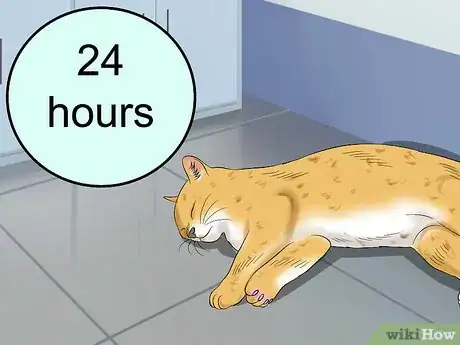

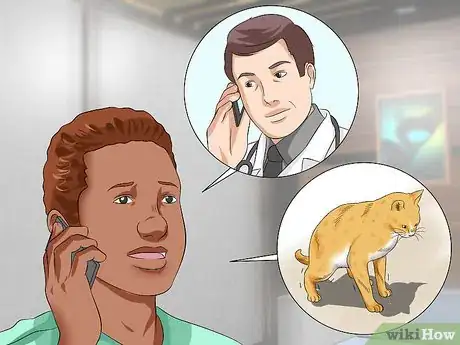

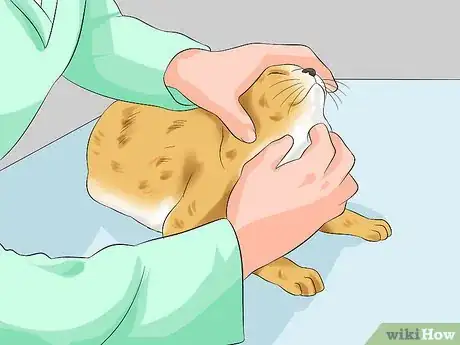
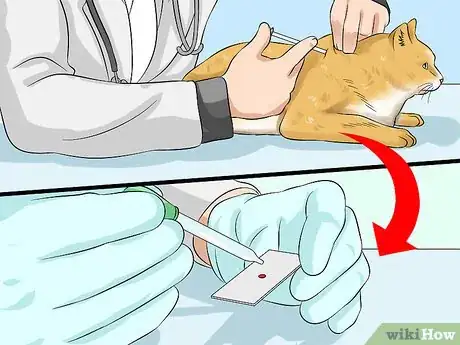


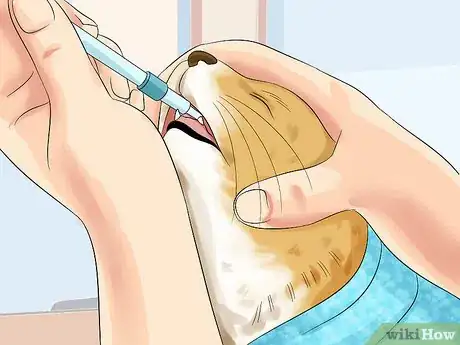
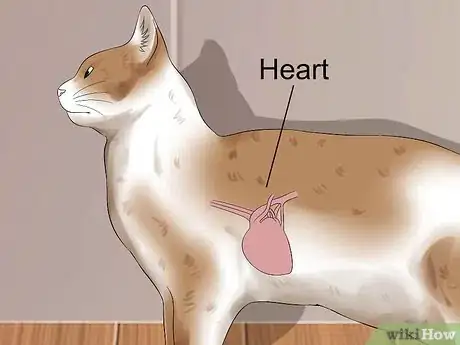
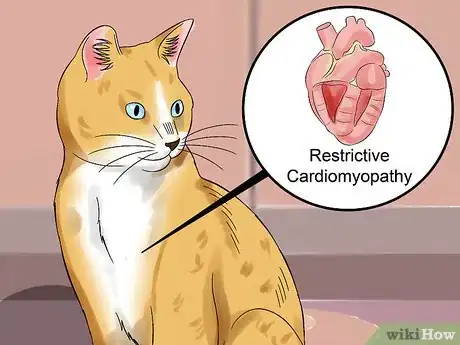
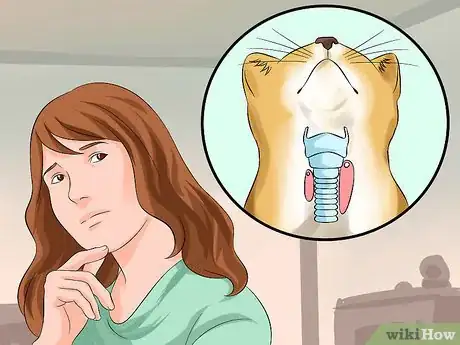
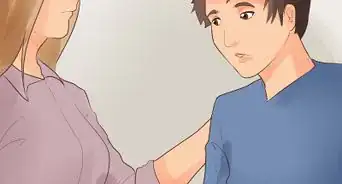

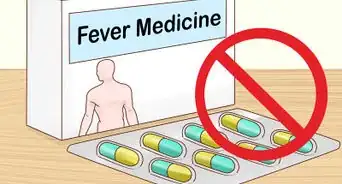
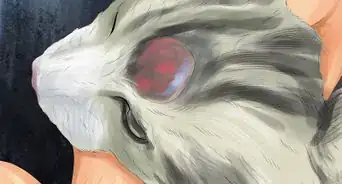
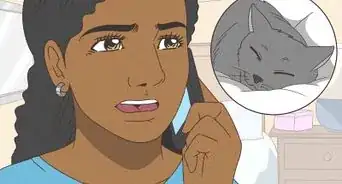
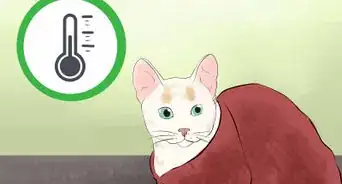
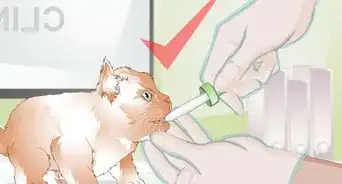
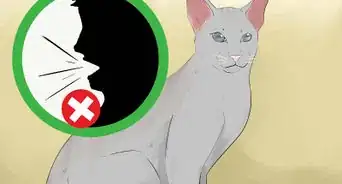

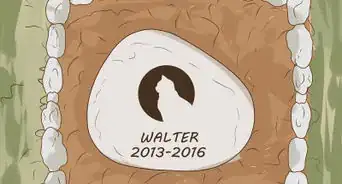

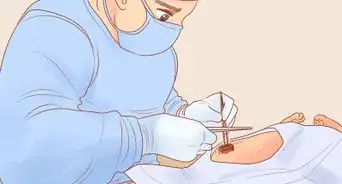

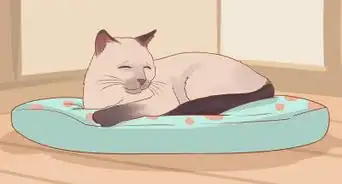







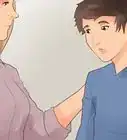

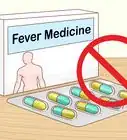
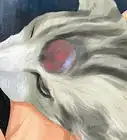



































Medical Disclaimer
The content of this article is not intended to be a substitute for professional medical advice, examination, diagnosis, or treatment. You should always contact your doctor or other qualified healthcare professional before starting, changing, or stopping any kind of health treatment.
Read More...